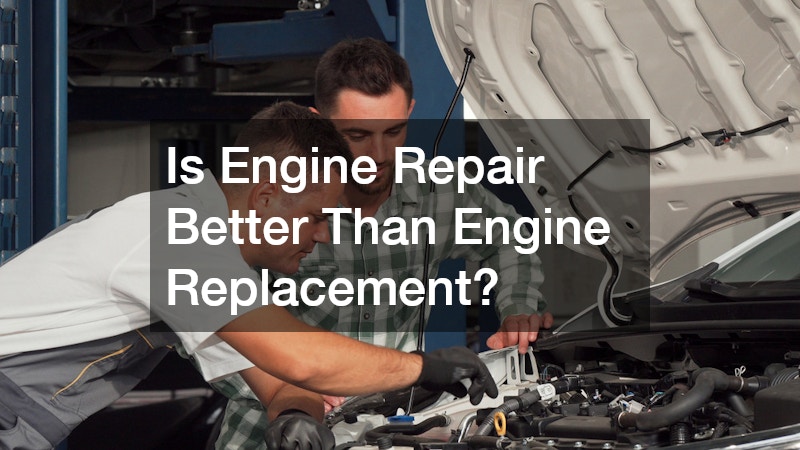Welcome to our comprehensive guide on how to effectively take care of your company vehicles. Proper maintenance and care are crucial in ensuring the longevity and performance of your fleet. By following the tips outlined in this article, you can save time and money in the long run while also maximizing the safety and efficiency of your vehicles.
One of the most important aspects of vehicle maintenance is regular upkeep, such as diesel engine repair. This includes tasks such as oil changes, filter replacements, and tire rotations. By staying on top of these routine maintenance tasks, you can prevent costly repairs and breakdowns.
Preventative inspections are another key component of maintaining your company vehicles. Regularly checking for any potential issues can help catch problems early on, saving you from more extensive repairs down the line.
1. Regular Maintenance
Regular maintenance is essential for keeping your company vehicles running smoothly. From oil changes to tire rotations, staying on top of these tasks can prevent costly repairs and keep your fleet in optimal condition. By scheduling regular maintenance checks, you can catch any potential issues early on and address them before they become major problems.
When it comes to car repair, proper maintenance is key. By following the manufacturer’s guidelines and staying on top of routine tasks, you can extend the lifespan of your vehicles and ensure they perform at their best. Don’t overlook the importance of regular maintenance when it comes to caring for your company vehicles.
Regular maintenance can also help improve the fuel efficiency of your vehicles, saving you money in the long run. By keeping your vehicles well-maintained, you can ensure they are operating at peak performance and getting the most out of every gallon of fuel.
2. Preventative Inspections

Preventative inspections are crucial for identifying potential issues before they escalate into major problems. By conducting regular inspections of your company vehicles, you can catch any repairs early on and address them proactively. This can help prevent costly breakdowns and repairs down the line. Investing in services like auto glass replacement is also a huge benefit.
When it comes to repairs, preventative inspections are a key part of maintaining your fleet. By identifying issues early on, you can save time and money by addressing them before they become more serious. Make sure to schedule regular inspections to keep your vehicles in top condition. A professional auto glass repair service is one of many helpful inspections.
Preventative inspections can also help ensure the safety of your drivers and passengers. By identifying and addressing any potential safety hazards, you can reduce the risk of accidents and keep your fleet operating smoothly. Don’t skip out on regular inspections when it comes to caring for your company vehicles.
3. Keeping Vehicles Clean
Keeping your company vehicles clean is not just about aesthetics – it’s also essential for maintaining their condition. Regular washing and detailing can help prevent rust and corrosion, as well as extend the lifespan of your vehicles. Make sure to hire services for auto air conditioning repair regularly as well.
In addition to washing the exterior, don’t forget to clean the interior of your company vehicles as well. Vacuuming and wiping down surfaces can help prevent wear and tear, as well as create a more pleasant driving environment for your employees. Regular cleaning can also help maintain the value of your fleet vehicles.
When it comes to repairs, keeping your vehicles clean is a simple yet effective way to care for your fleet. By incorporating regular cleaning into your maintenance routine, you can keep your vehicles looking great, protect their surfaces, and ensure they are in top condition for years to come.
4. Monitoring Tire Health

Monitoring the health of your company vehicles’ tires is crucial for both safety and performance. Check tire pressure regularly and inspect for signs of wear and damage. Consult with auto body repair shops as well. Properly inflated tires can improve fuel efficiency and handling, while worn tires can be a safety hazard. Make sure you get auto repairs regularly to keep your fleet in top shape.
Rotating tires on a regular basis can help ensure even wear and extend the life of your company vehicles’ tires. By following the manufacturer’s recommended maintenance schedule, you can prevent uneven wear and potential blowouts. Don’t overlook the importance of tire maintenance when caring for your fleet.
In addition to monitoring tire pressure and wear, make sure to check alignment and balance as well. Misaligned or unbalanced tires can cause uneven wear and affect handling. By addressing these issues promptly, you can maintain the safety and performance of your company vehicles. Don’t forget to repairs when it comes to tire maintenance.
5. Checking Fluid Levels
Checking and maintaining fluid levels in your company vehicles is essential for their performance and longevity. Make sure to regularly check oil, coolant, brake fluid, and transmission fluid levels, and top them off as needed. Low or dirty fluids can cause engine damage and affect vehicle operation. Don’t forget to repairs to keep your fleet running smoothly.
Regularly changing fluids according to the manufacturer’s recommended schedule is also important for the health of your company vehicles. Fresh fluids help lubricate moving parts, prevent overheating, and protect against wear and corrosion. Make sure to follow the recommended maintenance intervals to keep your fleet in top condition.
In addition to checking and changing fluids, make sure to inspect for any leaks or unusual smells. Leaking fluids can indicate a problem that needs immediate attention. By addressing fluid issues promptly, you can prevent more extensive damage and keep your company vehicles on the road. Don’t skip out on repairs when it comes to checking fluid levels.
6. Addressing Minor Repairs Promptly

Addressing minor repairs promptly can prevent them from turning into major issues that are more costly to repair. Don’t ignore strange noises, vibrations, or warning lights – instead, have them inspected by a qualified mechanic right away. By addressing minor repairs early on, you can save time and money in the long run.
Regularly inspecting your company vehicles for signs of wear and damage can help identify minor repairs that need attention. From squeaky brakes to cracked windshields, don’t wait until the problem escalates – address it promptly. Make sure to repairs as soon as you notice any issues to keep your fleet in top condition.
In addition to addressing minor repairs, make sure to keep up with scheduled maintenance tasks. By following the manufacturer’s recommended maintenance schedule, you can catch any potential problems early on and address them before they become major issues. Don’t neglect minor repairs when caring for your company vehicles.
7. Professional Servicing
While it’s important to address minor repairs promptly, some maintenance tasks are best left to the professionals. From complex engine repairs to delicate glass replacements, make sure to schedule service with a qualified mechanic or technician. By entrusting your company vehicles to experts, you can ensure they receive the care and attention they need.
When it comes to repairs, professional servicing is essential for maintaining the safety and performance of your fleet. Don’t attempt complex repairs or maintenance tasks on your own, such as car window replacement. Instead, rely on professionals who have the skills and expertise to get the job done right. Make sure to schedule regular service appointments to keep your vehicles in top condition.
In addition to repairs, professional servicing can also help prevent future issues from arising. By having your company vehicles regularly serviced by qualified professionals, you can catch any potential problems early on and address them before they become major issues. Don’t skimp on professional servicing when caring for your fleet.
8. Documenting Maintenance History
Keeping a detailed maintenance history for each of your company vehicles is essential for tracking repairs and servicing. Make sure to document all maintenance tasks, repairs, and inspections, including dates and mileage. By maintaining accurate records, you can better track your fleet’s maintenance needs and ensure they are kept in top condition. Even for things such as car window tinting services, this is important.
Documenting maintenance history can also help you identify any recurring issues or patterns that need to be addressed. By reviewing past maintenance records, you can pinpoint areas that require additional attention and prevent future problems. Make sure to repairs regularly and keep detailed records for each of your company vehicles.
In addition to tracking maintenance tasks, make sure to document any warranty information or service contracts. Keeping all relevant paperwork in one place can help streamline the maintenance process and ensure you have the necessary information on hand when needed. Don’t overlook the importance of documenting maintenance history when caring for your fleet.
9. Training Employees on Vehicle Care
Properly training your employees on vehicle care can help ensure your company vehicles are well-maintained and perform optimally. Provide training on basic maintenance tasks such as checking fluid levels, changing tires, and monitoring tire health. By equipping your employees with the skills and knowledge they need, you can extend the lifespan of your fleet and keep it in top condition.
In addition to basic maintenance tasks, make sure to educate your employees on how to properly drive and operate company vehicles. Safe driving practices can help prevent accidents and reduce wear and tear on your vehicles. Make sure to repairs on vehicle care as part of your employee training program to keep your fleet running smoothly.
Encourage employees to report any issues or concerns they notice with company vehicles promptly. By creating an open line of communication, you can address problems early on and prevent more extensive damage. Make sure to provide ongoing training and support to ensure your employees are equipped to care for your fleet properly.
10. Budgeting for Vehicle Maintenance

Creating a budget for vehicle maintenance is essential for ensuring your company vehicles receive the care they need. Factor in costs for routine maintenance tasks, inspections, repairs, and replacements when developing your budget. By allocating funds specifically for vehicle maintenance, you can prevent unexpected expenses and keep your fleet in top condition.
When budgeting for repairs, make sure to account for the age and condition of your vehicles. Older vehicles may require more frequent maintenance and repairs, so plan accordingly. Consider establishing a maintenance fund to cover unexpected costs and ensure your fleet is always well-maintained.
In addition to budgeting for routine maintenance, make sure to plan for upgrades and replacements as needed. As your company vehicles age, they may require more extensive repairs or replacements. By budgeting for these costs in advance, you can avoid financial strain and keep your fleet operating smoothly. Don’t overlook the importance of budgeting for vehicle maintenance when caring for your company vehicles.
Quick Company Vehicle Financing Tips
Managing company vehicle expenses is crucial for business owners aiming to maintain profitability and operational efficiency. Here are key strategies to save money on company vehicle expenses:
- Opt for Fuel-Efficient Vehicles: Choose vehicles with high fuel efficiency or hybrid models. This not only reduces fuel costs but also aligns with eco-friendly business practices.
- Regular Maintenance: Implement a strict maintenance schedule to ensure vehicles run efficiently and prevent costly repairs. Routine checks on oil, tires, and brake repair work can extend vehicle life and improve fuel economy.
- Leasing vs. Buying: Consider leasing vehicles instead of buying. Leasing can reduce upfront costs and provide tax benefits, while also allowing for easier upgrades to newer models.
- Fleet Management Software: Invest in fleet management software to monitor vehicle usage, track maintenance schedules, and optimize routes. This can lead to significant savings in fuel and maintenance costs.
- Driver Training: Educate drivers on fuel-efficient driving techniques, such as smooth acceleration and braking, maintaining optimal speeds, and reducing idling time. Safe driving habits can reduce wear and tear and lower insurance premiums. Reduced commercial auto insurance rates will save plenty of money.
- Bulk Purchasing and Negotiation: Buy fuel in bulk if possible or negotiate fuel contracts with suppliers for better rates. Additionally, bulk purchasing of maintenance supplies can also yield discounts.
- Telematics Systems: Utilize telematics systems to monitor driving behavior and vehicle health. This technology helps in identifying inefficiencies and correcting them promptly.
By implementing these strategies, business owners can significantly reduce company vehicle expenses, leading to improved financial health for their business.
By implementing the tips and best practices outlined in this article, you can ensure your company vehicles remain in optimal condition and maximize their lifespan. From regular maintenance to professional servicing, proper care and attention can save you time and money while enhancing the safety and efficiency of your fleet. Don’t underestimate the importance of repairs when it comes to caring for your vehicles – by taking proactive steps and staying on top of maintenance, you can keep your fleet running smoothly for years to come.






